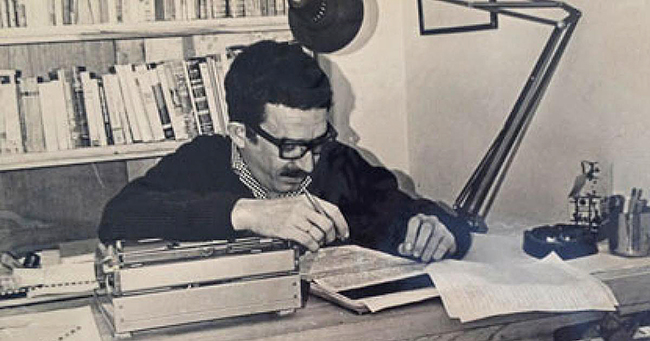Drafts, photos and quirky fan mail correspondences can all be found in the depths of Gabriel García Márquez’s archives. The University of Texas’ Harry Ransom Center is increasing access to these colorful aspects of the literary titan’s archives from the 40 Acres to the entire world for fans and scholars to enjoy.
The Ransom Center boasts an extensive collection of original archives, including those of David Foster Wallace, Edgar Allan Poe and Robert De Niro, available to anyone in Austin. Over the next year, though, the Ransom Center will convert their records of García Márquez, acquired in November 2014, to a digital format viewable anywhere in the world.
Elizabeth M. Gushee, head of digital collections services, said as of right now, anyone interested in conducting research with García Márquez’s archives must go to the Ransom Center in person, which makes it difficult for people who do not live in Texas.
The venture, titled “Sharing ‘Gabo’ With The World: Building the Gabriel García Márquez Online Archive from His Papers at the Harry Ransom Center,” will not only make the archives easier to access but also makes comparing various documents an easier process by allowing readers to view various documents in a side-by-side format.
“This will make it much more convenient for people to compare different documents in one sitting, especially when they are trying to follow the succession of a particular work through its different phases,” Gushee said.
The digitizing of García Márquez is not a quick or easy project. The venture will take well over a year, beginning in June 2016 and ending in November 2017. The University received a $126,730 grant from the Council on Library and Information Resources.
“Grants like these are very important to the University because they allow us to hire people to expedite the process and gives us the opportunity to show what can be done so we can possibly take on similar projects in the future,” director of development Margie Rine said.
García Márquez, the recipient of the Nobel Prize in Literature in 1982, is most famous for his novels and short stories, including “One Hundred Years of Solitude,” “Love in the Time of Cholera” and “Eyes of a Blue Dog.” Gushee said access to his archives also gives people insight into García Márquez’s international travels and involvement with journalism and politics through letters and photos. García Márquez’s writing is important to the Latin American community, but his relevance expands well beyond that.
“[He] had a profound effect on the 20th century novel and, for many of us, expanded our fictional worlds,” Stephen Enniss, director of the Harry Ransom Center, said. “‘One Hundred Years of Solitude’ has had as significant an impact on literature in the second half of the 20th century as James Joyce’s ‘Ulysses’ had on the first half of the century.”
Rine said this worldwide appeal makes access to García Márquez’s archives crucial to scholars, novelists and fans from Latin American countries all the way to Asia.
“García Márquez has inspired so many writers and will continue to do so for generations,” Rine said. “The themes in his writing transcend culture. They’re just so universal and can be related to by anyone and everyone.”















